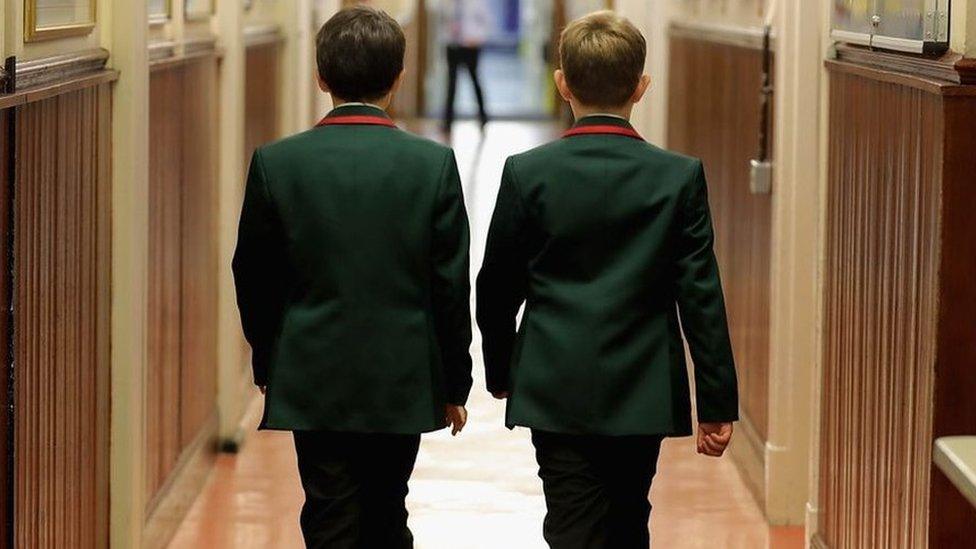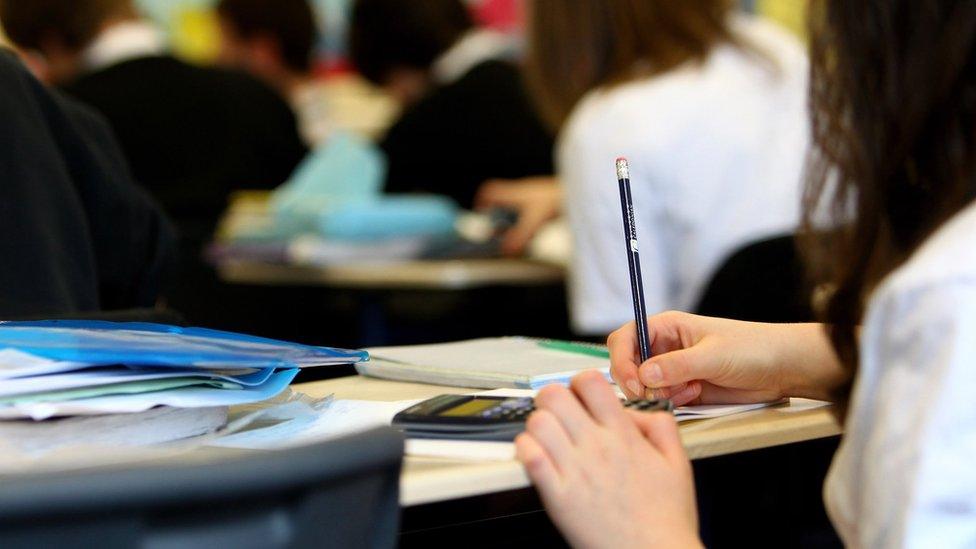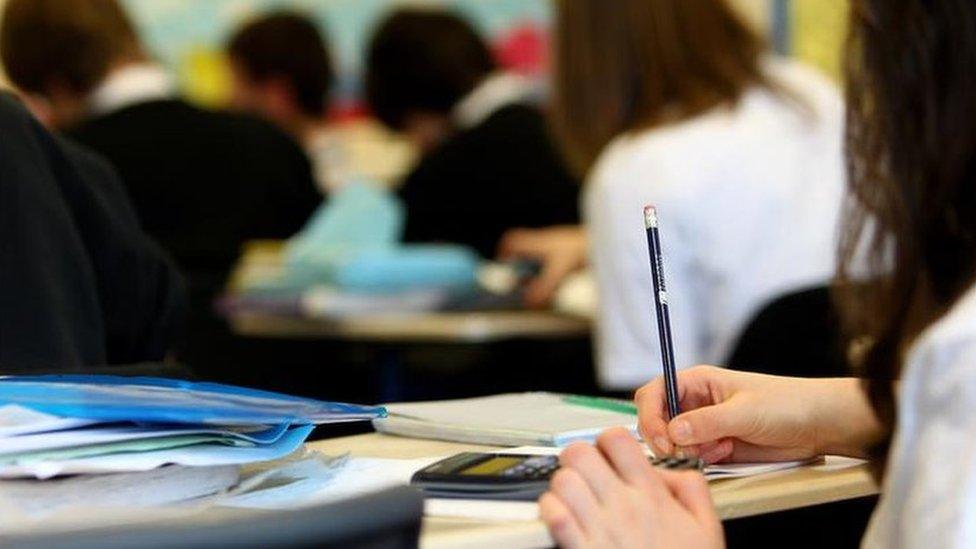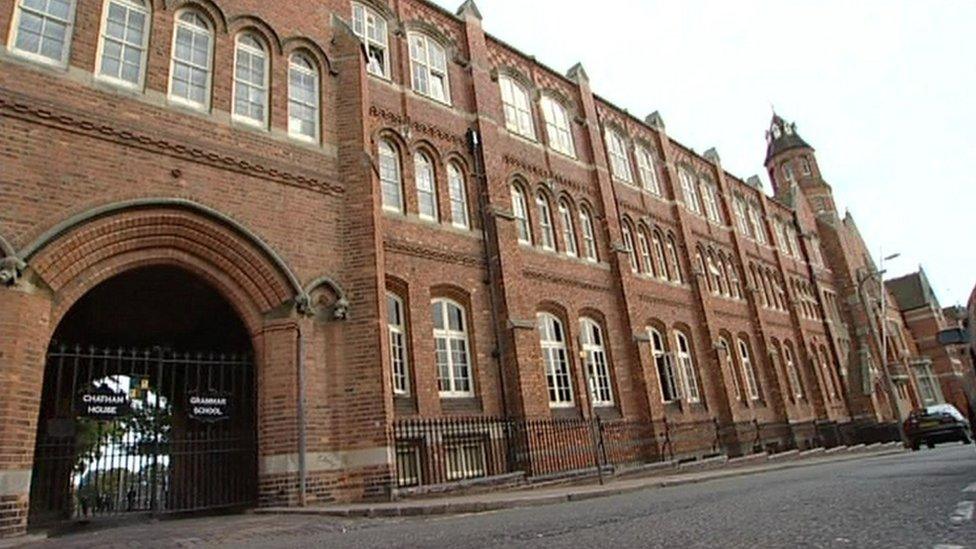Grammars: Excellence for the few not the many?
- Published

England has 163 grammar schools with 167,000 pupils
It's around this time of year that children in many parts of the country will find out if they have a grammar school place.
Some parents take no chances in getting their children into an academically selective school.
Tutoring businesses flourish in areas where there are grammar schools, and some parents pay thousands of pounds to get their children ready.
Others might only be able to afford a few hours to prepare children for an unfamiliar hurdle.
That's because grammar school entry tests, which vary from area to area, are quite different from anything children will study in school.
They often include verbal and non verbal reasoning tests as well as maths and English.
Grammar schools say they're working with academics to make the tests "tutor proof" but most experts believe this can't be done.
The most expensive option is parents who educate their children privately throughout their primary years in order to give them a better chance of getting a grammar school place.
The figures suggest this tactic works.
Around 13% of grammar school pupils nationally have previously attended a private prep school.
That's four times more than the proportion who are eligible for free school meals.
These advantages, conferred by money, are one reason why grammar school intakes are disproportionally affluent.
There is little that grammar schools can do about the private tutoring business, but some are trying to find other ways of compensating.
Admission policies are a key part of this, and are also clearly a focus of some of the government thinking on grammar schools.
Some schools have altered the priority they give to poorer children who have passed the test threshold.
Most have not.
The Schools Minister Nick Gibb gave a clear signal in his BBC interview today that one option they are looking at with interest is quotas.
None of this is likely to quieten the broad coalition of opposition that includes most teachers, academics, and quite a few Conservative MPs.
They will still argue that grammar schools are about excellence for the few, not the many.
- Published18 October 2016

- Published9 September 2016
- Published8 September 2016

- Published9 September 2016
